592 najdenih rezultatov
Skip results of view Novice
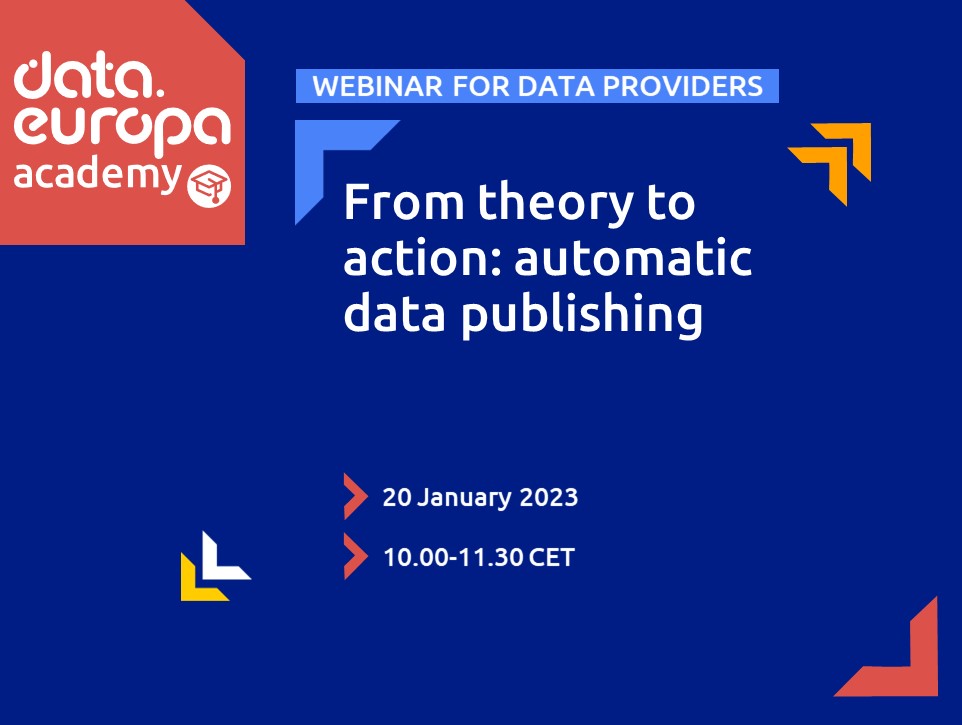
The webinar ‘ From theory to action: automatic data publishing ’ will be conducted on Friday, 20 January 2023 from 10.00 to 11.30 CET. This is the fifth of a series of six trainings aimed at supporting data providers in their data publishing process . The webinar will be presided over by Simon Dutwoski from Fraunhofer who will take a deep dive into the publishing process on data.europa.eu and address the needs of data providers. Data.europa.eu is a catalogue of metadata describing data which is stored in data providers´ data repositories. Data providers are the publishers of metadata and are
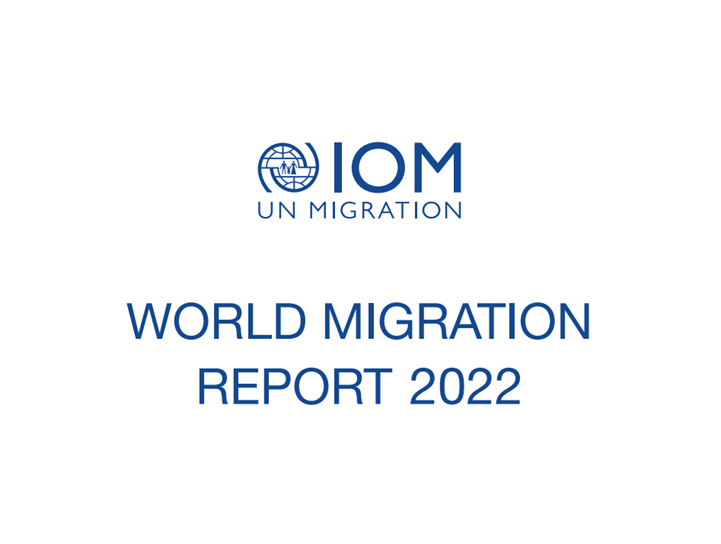
On 18 December, it is International Migrants Day. On this occasion, the World Migration Report 2022 was recently published by the United Nations´ International Organization for Migration (IOM). The eleventh edition of this report aims to increase the understanding of migration throughout the world, by showcasing key data and information on migration as well as thematic chapters on complex and emerging migration issues. According to the 2022 report, the number of international migrants has increased over the past five decades, with 281 million people currently living in a country other than
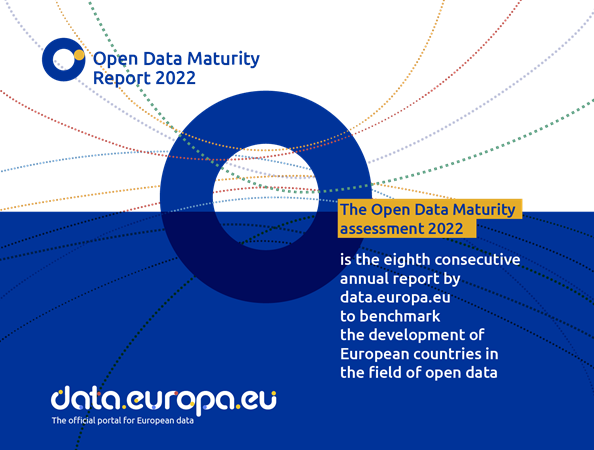
The eighth annual report measuring the level of open data maturity across Europe is published. The Open Data Maturity (ODM) Report 2022 records the progress achieved by EU Member States as they push forward open data publication and reuse, as well as the different priorities set to enable this. The year’s report is based on a self-assessment survey that was completed by 35 countries. While remaining an EU-focused exercise, in fact, the ODM 2022 includes not only the 27 EU Member States, but also 3 European Free Trade Association (EFTA) countries (Norway, Switzerland, Iceland), 4 candidate
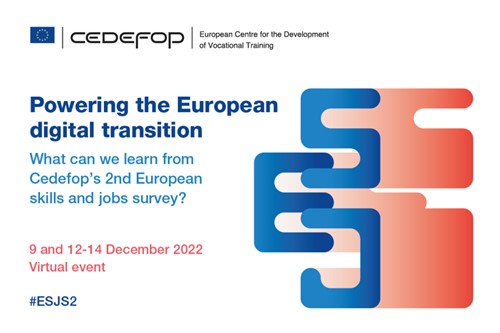
Between the 9 and 14 December the European Centre for the Development of Vocational Training (Cedefop) will host a four-day virtual conference on ‘ Powering the European digital transition – What can we learn from Cedefop´s 2 nd European skills and jobs survey? ’. The conference will focus on the main findings of Cedefop´s second European skills and jobs survey (ESJS2). The survey sampled about 46000 adult workers, collecting information on how digitalisation affects them, whether their skills match their job requirements, and the extent to which they are ready to invest in vocational training
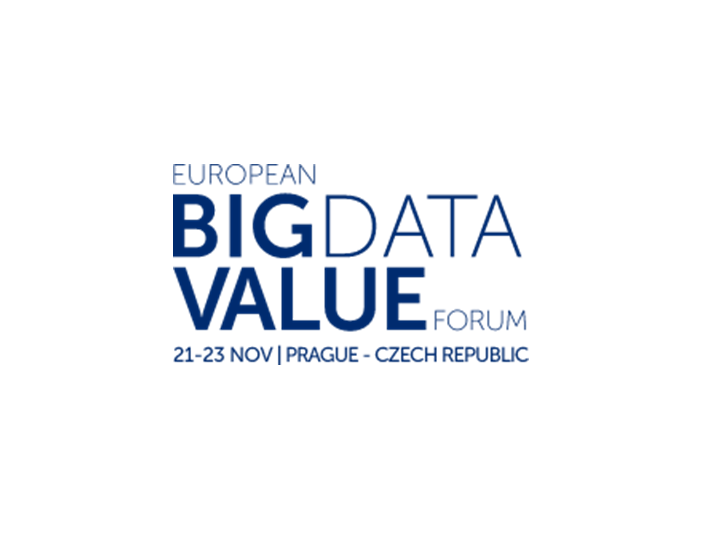
The European Big Data Value Forum (EBDVF) is the flagship event organised annually by the Big Data Value Association (BDVA) to bring together the whole European data-driven AI research and innovation community to share knowledge, collaborate and celebrate achievements in the field. This year, the EBDVF took place in Prague (Czech Republic) between the 21 st and 23 rd of November. Under the theme ‘At the heart of the Ecosystem for Data and AI’, the programme involved several keynote speeches, presentations, and co-creative workshops on ‘Data Spaces’, ‘Industrial and Trustworthy AI’, ‘Technology
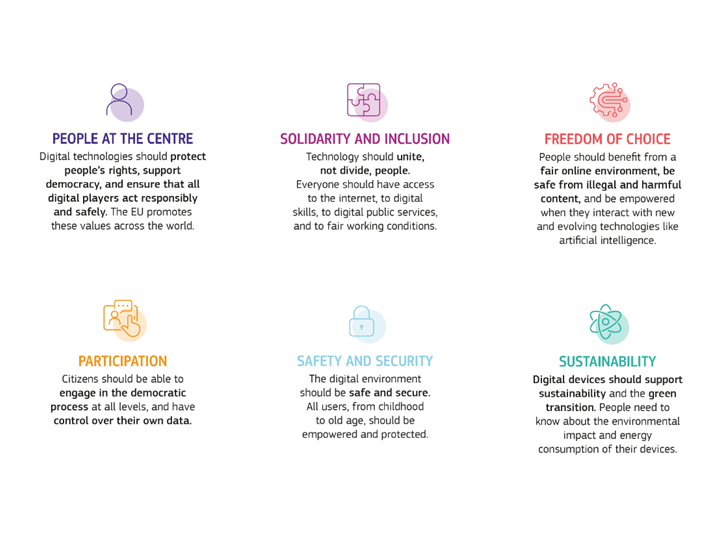
On 14 November 2022, the European Commission, European Parliament and the Council of the European Union reached a political agreement on the European declaration on digital rights and principles , proposed by the Commission in January. Once jointly signed by the three EU institutions, the declaration will set out the global approach to the digital transformation that the EU will take to foster growth, prosperity, security, competitiveness as well as societal well-being across Member States. In particular, the declaration will complement existing rights, contained for example in the GDPR
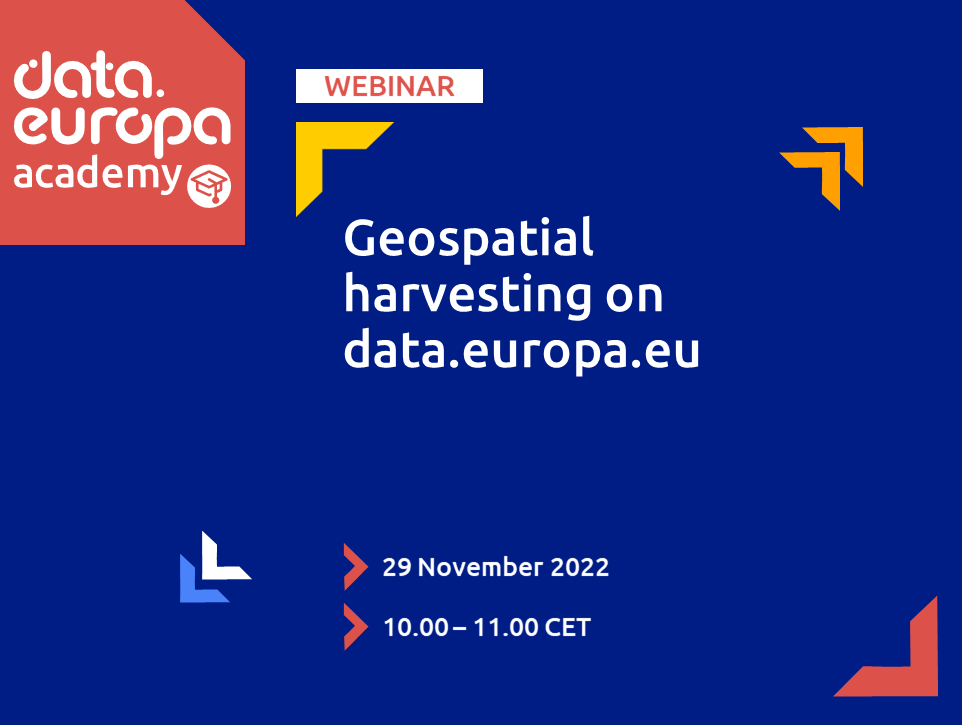
On 29 November 2022, the data.europa academy conducted a webinar on the topic ‘Geospatial harvesting on data.europa.eu’. The primary aim of the webinar was to introduce the type, origin and services of geospatial data that can be found on data.europa.eu and to explain the process of harvesting it. In the first part of the webinar, Dr. Thore Fechner (Head of Team for Open Data and Copernicus at con terra) discussed the ample amount of geospatial data that is available on the portal and walked through the entire process of geospatial harvesting from a geo-catalogue to the portal. He explained
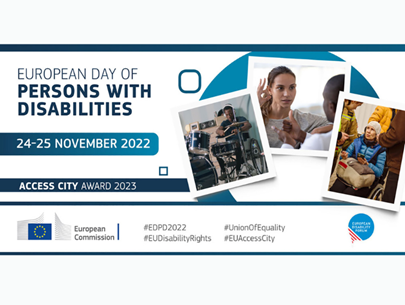
Tomorrow, 3 December, marks the 30 th annual International Day of Persons with Disabilities (IDPD), initiated by the United Nations (UN) in 1992 to promote the rights, well-being and development of people with disabilities in society. To raise awareness about the daily difficulties faced by the 87 million Europeans with disabilities , several initiatives are also undertaken around Europe. The 2022 edition of the European Day of Persons with Disabilities conference took place in Brussels on 24 and 25 November 2022. In partnership with the European Disability Forum, the European Commission
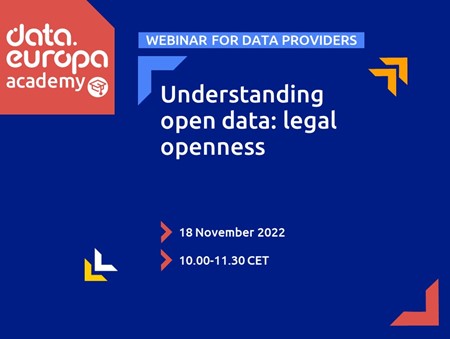
The webinar ‘Understanding open data: legal openness’ was held on 18 November 2022. This was the third webinar of the data.europa academy series dedicated to data providers and focused on what data openness entails from a legal perspective and how it can be optimally achieved. The goal of the webinar was not to provide purely theoretical legal training, but also to identify best practices and resources that data providers can use to achieve openness and to realise when openness cannot be achieved. In the first part of the webinar, Hans Graux, lawyer at Timelex , provided an introduction on how

The Interoperability Unit of the European Commission’s Directorate-General for Informatics (DIGIT) and the Czech Presidency of the Council of the EU will host the 2022 edition of SEMIC: Data Spaces in an Interoperable Europe on December 6. This year the conference will take place both in person, at the Square Meeting Centre in Brussels, and online. More information on how to participate either physically or remotely, can be found here. The conference will revolve around the implementation of data spaces. In particular, the conference will offer support in overcoming obstacles in implementing
